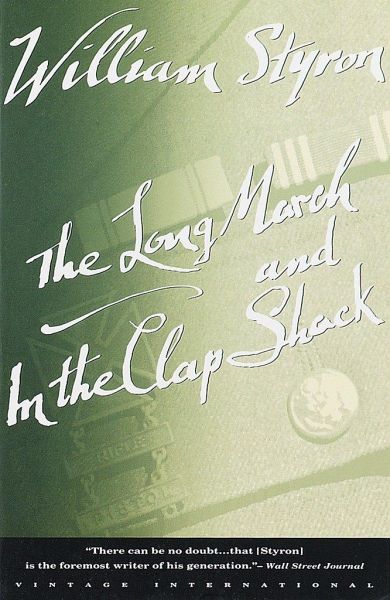
The Long March and In the Clap Shack
Versandkostenfrei!
Versandfertig in 1-2 Wochen
15,99 €
inkl. MwSt.

PAYBACK Punkte
8 °P sammeln!
Two extraordinary works about soldiers in a time of dubious peace by a writer of vast eloquence and moral authority. With stylistic panache and vitriolic wit, William Styron depicts conflicts between men of somewhat more than average intelligence and the military machine. In The Long March , a novella, two Marine reservists fight to retain their dignity while on a grueling exercise staged by a posturing colonel. The uproariously funny play In the Clap Shack charts the terrified passage of a young recruit through the prurient inferno of a Navy hospital VD ward. In both works, Styron wages a gal...
Two extraordinary works about soldiers in a time of dubious peace by a writer of vast eloquence and moral authority. With stylistic panache and vitriolic wit, William Styron depicts conflicts between men of somewhat more than average intelligence and the military machine. In The Long March , a novella, two Marine reservists fight to retain their dignity while on a grueling exercise staged by a posturing colonel. The uproariously funny play In the Clap Shack charts the terrified passage of a young recruit through the prurient inferno of a Navy hospital VD ward. In both works, Styron wages a gallant defense of the free individual--and serves up a withering indictment of a system that has no room for individuality or freedom.













